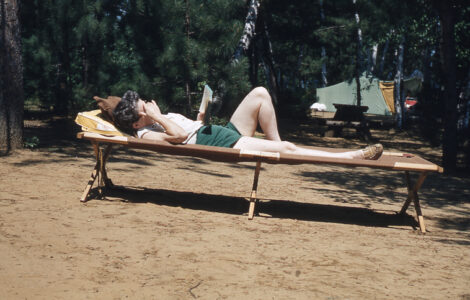Book details love story between American journalist and Russian skater

“Maia — A Cold War Novel,” by Richard Manichello
—
Richard Manichello’s consistently entertaining “Maia” is a bit like a seven-part Netflix series. “Maia” is a Cold War thriller; a new take on the star-crossed lovers’ story; a story of redemption; a coming of age story set in a hard-scrabble town near Pittsburgh; an analysis in the negative, and profitable, changes in youth sports; a story of sexual abuse of young athletes; and a story of revenge.
A less-skilled writer could not weave all these threads together effectively, but Manichello is adept, using flashbacks and changes in point of view to tell the love story of a Russian figure skater and an American journalist who meet in Leningrad in 1983.
Journalist Eddie Genell grew up in the polarized American/Russian world of nuclear fear, complete with air-raid drills in schools and a classmate whose family had constructed a fall-out shelter in their backyard. When Genell was a boy, the Russians shot down the U-2 spy plane American Gary Peters was piloting. And in 1983, just before he meets Maia Ulyanovskya, the Soviets had shot down a Korean Airlines plane.
About the lives that he and Maia lived before they met, Genell tells us, “We would live each day with a serious and fearful premonition. We would know nothing else in our lives but to exist, go to school and learn, and take up football or skating — to laugh and love and live in the time of the Cold War.”
Genell writes feature stories for “Athlete” magazine. When he arrives in Russia, his life, personal and professional, is a mess. His marriage is ending, his drinking is increasing, his writing deteriorating. This story about a young, charismatic Soviet skating star preparing for the ’84 Olympics in Sarajevo, might be his last chance.
The meeting of Eddie Genell and Maia is, indeed, “love at first sight,” but not a cliche in Manichello’s hands. Watching Maia practice, sportswriter Genell first notices the skater’s skill: “She leaps into the air at twenty miles an hour, completes three full rotations, and lands on a blade no wider than a strand of linguini. A triple. Four people in the world can do that, maybe three.”
That’s the beginning of Genell’s recovery as a writer — his effort to describe the skill he sees. His recovery as a person begins with his meeting of the skater: “She takes a step towards me, and all the adrenalin I have in my body is moving somewhere.”
The explosive romance that follows echoes other Russian love stories, complete with time at a snowbound dacha and horse-drawn sleighs. But the tension between their countries, the national versions of Capulets and Montagues, of course, works against the journalist from a free country and a skater from a totalitarian state. So Eddie Genell devises a plan to free Maia by having her flown out of Sarajevo’s 1984 Winter Olympics to Italy.
Manichello uses an effective frame for his story. Eddie bookends the story, sitting in the audience at Caesar’s in Las Vegas, watching Maia (“Just Maia. Hollywood A-list … Cher Madonna .. and the rest of the one-name pack”) headline an ice show in 2001. The prologue works, and the epilogue both wraps and surprises.
But “Maia” is more than just romance. The characters involved in Maia’s defection to the West are well drawn, and the plan compelling. The conversations between Genell and his editor at “Athlete” are insightful, about writing and about sports.
Manichello also describes some of the changes sports fans have noticed: “More and more young athletes were seeing the profitability in sport rather than the glory of competing out of a sense of national pride.” He also writes of the sexual abuse of young athletes, a sad topic that is no longer difficult to believe.
Those elements contrast to the beauty of sport, the magic the athlete experiences in the achievement. About skating, Maia says “And I can’t hear the wind, the city, the sirens, or traffic … don’t hear other kids even, screaming and laughing. Like I am in some crazy world of my own. I only hear scrape of my blades. I don’t feel the cold because I have become the blades. I am aware of nothing else.”
(The passage reminded this reader of Paul Newman’s character in “The Hustler,” Fast Eddie Felson, telling Piper Laurie what it was like to shoot pool. )
Not all the pieces of the novel, however, work. Eddie Genell becomes an avenger, delivering a violent beating on a despicable Russian, who had abused Maia, in New York City. His actions seemed both out of character and unnecessary for the story.
But that’s a minor quibble. This is a rich story by a keen and mature observer. And readers familiar with an affection for winter sports will especially enjoy “Maia.” Also, North Country readers will appreciate the Lake Placid references.


